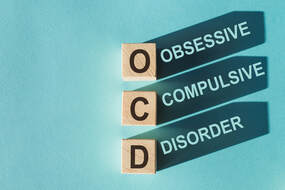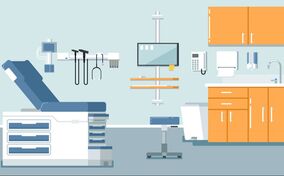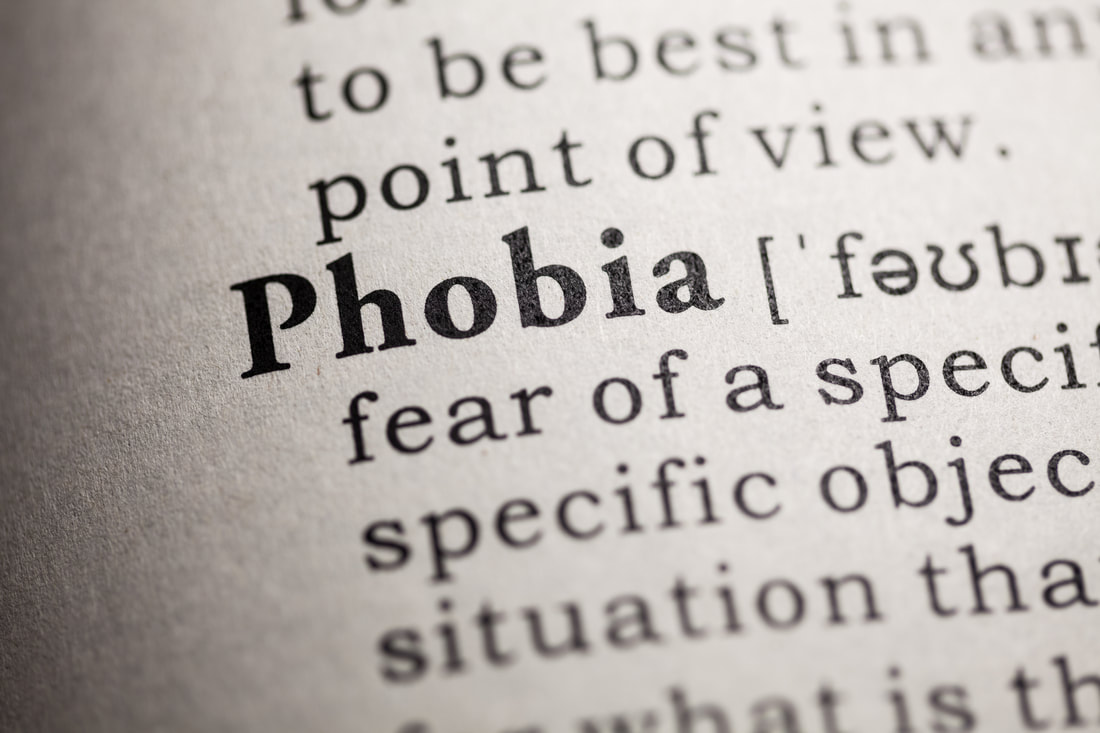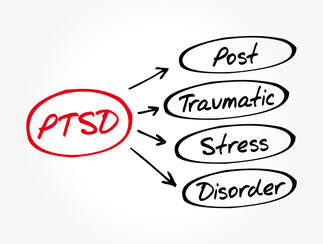|
Doctor of Philosophy
Licensed Clinical Psychologist Clinical Site Director, North Aurora To make an appointment with Dr. Gorin, please call 630-570-0050. You can also email [email protected].
Anxiety Disorders, Social Anxiety Disorder, Generalized Anxiety Disorder (Worry), Panic Disorder with or without Agoraphobia, Health Anxiety Disorder, Specific Phobias, Obsessive-Compulsive Disorder (OCD), Posttraumatic Stress Disorder (PTSD)
Ages Served: Adults, Older Adults |
Biography
Education and Training Experiences
After graduating from Marquette University with a Bachelor of Arts Degree in Psychology, I received my masters and doctoral degrees from Rosalind Franklin University of Medicine and Science. My graduate training curriculum emphasized learning and applying cognitive-behavioral therapy. I completed my Predoctoral Clinical Psychology Internship at Alexian Brothers Behavioral Health Hospital where I had the opportunity to work in the Center for Anxiety and OCD intensive outpatient and partial hospitalization programs. I specialized in evidence-based outpatient treatments for PTSD, Anxiety disorders, and OCD during my Postdoctoral Fellowship at the University of Michigan/ VA Ann Arbor Healthcare System Consortium.
Therapeutic Approach
I currently treat:
Obsessive-Compulsive Disorder (OCD)
Social Anxiety Disorder (SAD)
Generalized Anxiety Disorder (Worry)
Panic Disorder with or without Agoraphobia
Health Anxiety/Illness Anxiety Disorder
Specific Phobias
Trauma- and stressor-related disorders (including PTSD)
Insomnia Disorder
In my practice, I dedicate most of my time to seeing adults with anxiety disorders, OCD, and trauma- and stressor-related disorders. I have worked with many healthcare workers and first responders who are suffering from work-related PTSD or have been impacted by the COVID-19 pandemic.
I strive to provide solely evidence-based care and the most effective and efficient treatments. I frequently participate in continuing education and I am a member of the International OCD Foundation (IOCDF), the Association for Depression, Anxiety Disorders of America (ADAA), and the International Society for Traumatic Stress Studies.
My therapeutic approach consists of cognitive-behavioral (CBT) and humanistic principles: I value your capacity to change your thoughts and behaviors and your autonomy to do so. Specifically, I offer evidence-based exposure treatments for anxiety disorders and OCD, such as Exposure and Response Prevention and Panic Control Treatment. When providing treatment for anxiety disorders and OCD, I focus on helping my patients learn to “sit with” and overcome fears. I believe in the science of exposure-based interventions because research demonstrates that fear diminishes by systematically facing it. I have continually witnessed the effectiveness of patients gradually approaching and conquering feared situations, thoughts, sensations, and memories. When providing treatment for trauma- and stressor-related disorders, I focus on helping patients effectively process traumatic memories and shift unhelpful cognitions, beliefs, and behaviors driven by past trauma. While the past cannot be altered, the impact of trauma on your emotions, life, and brain can be. Although I believe in the science of such interventions, I know that treatment would not be effective without human strength, resiliency, and capacity to overcome challenges. I am amazed by the courage of my patients to fight their discomfort and regain control over their anxieties and lives. I am honored to be a part of their victories.
I believe that successful treatment requires a strong therapeutic alliance and patient-driven treatment decisions. We will discuss your treatment goals and preferences during the first session. I seek to provide weekly, short-term treatment so that patients can conquer their fears and return to their lives. I work with patients 18 or older.
I utilize the following treatment Protocols:
Exposure and Response Prevention Therapy (ERP)
Panic Control Treatment
Exposure Therapy for Specific Phobia
Treatments That Work Series for Anxiety Disorders (Gold standard of behavioral interventions)
Prolonged Exposure Therapy (PE)
Cognitive Processing Therapy (CPT)
Obsessive-Compulsive Disorder (OCD)
Social Anxiety Disorder (SAD)
Generalized Anxiety Disorder (Worry)
Panic Disorder with or without Agoraphobia
Health Anxiety/Illness Anxiety Disorder
Specific Phobias
Trauma- and stressor-related disorders (including PTSD)
Insomnia Disorder
In my practice, I dedicate most of my time to seeing adults with anxiety disorders, OCD, and trauma- and stressor-related disorders. I have worked with many healthcare workers and first responders who are suffering from work-related PTSD or have been impacted by the COVID-19 pandemic.
I strive to provide solely evidence-based care and the most effective and efficient treatments. I frequently participate in continuing education and I am a member of the International OCD Foundation (IOCDF), the Association for Depression, Anxiety Disorders of America (ADAA), and the International Society for Traumatic Stress Studies.
My therapeutic approach consists of cognitive-behavioral (CBT) and humanistic principles: I value your capacity to change your thoughts and behaviors and your autonomy to do so. Specifically, I offer evidence-based exposure treatments for anxiety disorders and OCD, such as Exposure and Response Prevention and Panic Control Treatment. When providing treatment for anxiety disorders and OCD, I focus on helping my patients learn to “sit with” and overcome fears. I believe in the science of exposure-based interventions because research demonstrates that fear diminishes by systematically facing it. I have continually witnessed the effectiveness of patients gradually approaching and conquering feared situations, thoughts, sensations, and memories. When providing treatment for trauma- and stressor-related disorders, I focus on helping patients effectively process traumatic memories and shift unhelpful cognitions, beliefs, and behaviors driven by past trauma. While the past cannot be altered, the impact of trauma on your emotions, life, and brain can be. Although I believe in the science of such interventions, I know that treatment would not be effective without human strength, resiliency, and capacity to overcome challenges. I am amazed by the courage of my patients to fight their discomfort and regain control over their anxieties and lives. I am honored to be a part of their victories.
I believe that successful treatment requires a strong therapeutic alliance and patient-driven treatment decisions. We will discuss your treatment goals and preferences during the first session. I seek to provide weekly, short-term treatment so that patients can conquer their fears and return to their lives. I work with patients 18 or older.
I utilize the following treatment Protocols:
Exposure and Response Prevention Therapy (ERP)
Panic Control Treatment
Exposure Therapy for Specific Phobia
Treatments That Work Series for Anxiety Disorders (Gold standard of behavioral interventions)
Prolonged Exposure Therapy (PE)
Cognitive Processing Therapy (CPT)
About Me
What are your professional and personal values?
I value determination, growth, genuine regard and respect for others, consistency/ structure, and integrity. To me, determination is a key ingredient for overcoming obstacles and achieving happiness. I believe, with the courage to continue doing difficult tasks, my patients can achieve their goals. Also, I believe all human beings are capable of, and oriented towards, growth. I approach every patient with kindness, genuine regard, and respect. I want to know what you are experiencing and I want to determine how to help you. I am most effective in my personal and professional life when I have clear goals, structure, and a consistent routine. I value integrity, which to me is the pursuit of the right/ ethical decision, as opposed to the easy one. I will not ask my patients to do something difficult if I do not think it will help reduce their suffering in the long term.
What are some adjectives you would use to describe yourself and why?
I would describe myself as empathetic, kind, conscientious, passionate, and determined. At my core, I am a helper and a cheerleader, as I value praising and encouraging others. My father and my grandfather used to say, “roll with the punches.” I strive to do exactly that. I believe it is important to welcome growth while also prioritizing self-care. As providers, we should practice what we preach. I am a very conscientious person, as I want to do what is right and be mindful of the impact of my decisions on others. For this reason, I aim for your treatment to be dictated by science that has been demonstrated to be effective. I am passionate about my work and my life; I tend to put my whole heart into what I do.
What are some of your favorite self care activities?
Listening to music has always been an important aspect of my self-care routine. I believe it can be a very helpful tool for processing our thoughts, feelings, and experiences and also simply a source of joy in our lives. Also, I enjoy spending time with friends, family, and my two cats, who serve as my assistants when I work from home. Laughter is also important to me.
What is your favorite quote?
One of my favorite quotes is the following: “The temptation to quit will be greatest just before you are about to succeed.” This Chinese proverb reflects a component of success for all of us. Goals are often very difficult to achieve. We will tire in our pursuit to win our battles. However, from what I have seen, the moment my patients were most likely to see drastic shifts in symptoms, were moments they wanted to stop an exercise, stop pursuing a goal, or stop treatment altogether. I believe, if we can just keep going for just a little bit longer, we will succeed. My experiences and my patients’ experiences demonstrate this every day. In treatment, I hope to give my patients the tools to become their own therapists so that, even in the difficult moments, they can cope with symptoms and succeed in their healing process.
Why do you love being a mental health professional?
I often say I have the best job in the world. Why? Because I get to see the strength of the human spirit every day. I get to work with some of the most courageous human beings I have ever met and watch them overcome their greatest fears. I see persistence and willingness to change, even when it is exhausting and scary. What is even more incredible, is that I get to watch people make their lives better. I can’t do this work for you. You must take every step. However, I am remarkably honored to walk with you in your journey, to help guide the steps, and to cheer you on as you make your life better. In addition, I am honored to provide evidenced-based methods of treatment that help alleviate human suffering. My favorite part of my job is when a patient comes to session and says, “wow, I am starting to feel better.” That is why I do this work.
I value determination, growth, genuine regard and respect for others, consistency/ structure, and integrity. To me, determination is a key ingredient for overcoming obstacles and achieving happiness. I believe, with the courage to continue doing difficult tasks, my patients can achieve their goals. Also, I believe all human beings are capable of, and oriented towards, growth. I approach every patient with kindness, genuine regard, and respect. I want to know what you are experiencing and I want to determine how to help you. I am most effective in my personal and professional life when I have clear goals, structure, and a consistent routine. I value integrity, which to me is the pursuit of the right/ ethical decision, as opposed to the easy one. I will not ask my patients to do something difficult if I do not think it will help reduce their suffering in the long term.
What are some adjectives you would use to describe yourself and why?
I would describe myself as empathetic, kind, conscientious, passionate, and determined. At my core, I am a helper and a cheerleader, as I value praising and encouraging others. My father and my grandfather used to say, “roll with the punches.” I strive to do exactly that. I believe it is important to welcome growth while also prioritizing self-care. As providers, we should practice what we preach. I am a very conscientious person, as I want to do what is right and be mindful of the impact of my decisions on others. For this reason, I aim for your treatment to be dictated by science that has been demonstrated to be effective. I am passionate about my work and my life; I tend to put my whole heart into what I do.
What are some of your favorite self care activities?
Listening to music has always been an important aspect of my self-care routine. I believe it can be a very helpful tool for processing our thoughts, feelings, and experiences and also simply a source of joy in our lives. Also, I enjoy spending time with friends, family, and my two cats, who serve as my assistants when I work from home. Laughter is also important to me.
What is your favorite quote?
One of my favorite quotes is the following: “The temptation to quit will be greatest just before you are about to succeed.” This Chinese proverb reflects a component of success for all of us. Goals are often very difficult to achieve. We will tire in our pursuit to win our battles. However, from what I have seen, the moment my patients were most likely to see drastic shifts in symptoms, were moments they wanted to stop an exercise, stop pursuing a goal, or stop treatment altogether. I believe, if we can just keep going for just a little bit longer, we will succeed. My experiences and my patients’ experiences demonstrate this every day. In treatment, I hope to give my patients the tools to become their own therapists so that, even in the difficult moments, they can cope with symptoms and succeed in their healing process.
Why do you love being a mental health professional?
I often say I have the best job in the world. Why? Because I get to see the strength of the human spirit every day. I get to work with some of the most courageous human beings I have ever met and watch them overcome their greatest fears. I see persistence and willingness to change, even when it is exhausting and scary. What is even more incredible, is that I get to watch people make their lives better. I can’t do this work for you. You must take every step. However, I am remarkably honored to walk with you in your journey, to help guide the steps, and to cheer you on as you make your life better. In addition, I am honored to provide evidenced-based methods of treatment that help alleviate human suffering. My favorite part of my job is when a patient comes to session and says, “wow, I am starting to feel better.” That is why I do this work.
Meet Dr. Hillary Gorin
Professional Additional Experience
Professional Memberships:
International OCD Foundation (IOCDF)
Association for Depression and Anxiety Disorders of America (ADAA)
International Society for Traumatic Stress Studies
Professional Conference Presentations/Journal Articles:
Sexual, Gender, and Ethnoracial Identification in MST-Focused PTSD Treatment Retention Research
Anxiety-Specific Associations With Post-Error Slowing in a Pediatric Population
Exposure to Trauma: The Effects on Parenting Confidence in Immigrant and Nonimmigrant Samples
Attentional Bias, Trauma, and Psychopathology: Direct and Indirect Relationships in Ethnic Minority Preschoolers
Community Presentations:
Cognitive Behavioral Therapy (CBT) Techniques for Managing Stress and Anxiety
Teaching Assistant Appointments:
Theory of Personality and Emotion
Psychological Statistics II
International OCD Foundation (IOCDF)
Association for Depression and Anxiety Disorders of America (ADAA)
International Society for Traumatic Stress Studies
Professional Conference Presentations/Journal Articles:
Sexual, Gender, and Ethnoracial Identification in MST-Focused PTSD Treatment Retention Research
Anxiety-Specific Associations With Post-Error Slowing in a Pediatric Population
Exposure to Trauma: The Effects on Parenting Confidence in Immigrant and Nonimmigrant Samples
Attentional Bias, Trauma, and Psychopathology: Direct and Indirect Relationships in Ethnic Minority Preschoolers
Community Presentations:
Cognitive Behavioral Therapy (CBT) Techniques for Managing Stress and Anxiety
Teaching Assistant Appointments:
Theory of Personality and Emotion
Psychological Statistics II
Blogs:
|
The COVID-19 pandemic has had a profound impact on nearly every aspect of our lives, including our mental health. Many individuals, especially healthcare workers, first responders, and patients hospitalized with COVID-19, have been traumatized throughout this pandemic. With increased uncertainty and the omnipresent threat of COVID-19, many individuals have felt overall more anxious about their life, health, future, and world...(to read more, click on the link above)
|
|
However, when we worry about unsolvable problems or problems that extend beyond our control, we can find it difficult to know what to do with the uncertainty. With an immense desire to solve an unsolvable problem, we can fall into what I like to call the ‘worry cycle’ or the ‘hamster wheel of worry.’ Our minds go around and around, searching for answers we cannot seem to find. So, how do you get off this hamster wheel? How do you accept uncertainty, particularly during these times of social unrest, political turmoil, and a terrifying pandemic...(to read more, click on the link above).
|
|
Essentially, Generalized Anxiety Disorder (GAD) is chronic worry (American Psychiatric Association, 2013). I often describe it as the tendency to get on the hamster wheel of worry. Worries spin around and around, continuing to fuel anxiety. If you are diagnosed with this, you will also be experiencing the physical impact of this anxiety, such as sleep difficulties or muscle tension...(to read more, click on the link above).
|
|
Most of us, in our lifetime, will experience a panic attack. However, when you develop panic disorder, you experience frequent, unexpected panic attacks (or surges of intense fear and discomfort) accompanied by either a fear of having another panic attack or change in behavior related to attacks (American Psychiatric Association, 2013). In other words, you live in fear of having another panic attack and have panic attacks that feel like they hit you out of the blue. This is often a very hard way to live...(to read more, click on the link above).
|
|
I describe OCD to my patients as having “sticky brain” or “itches” that need to be scratched or something bad will happen. If we look at our diagnostic manual, obsessions are defined as thoughts, images, or impulses that reoccur and are intrusive in a way that causes anxiety/ distress (American Psychiatric Association, 2013). Compulsions are defined as actions or mental acts that take place in response to the obsession. In other words, OCD consists of having an intrusive thought and feeling the urge to undo or prevent the thought from coming true through some sort of mental or physical act...(to read more, click on the link above).
|
|
Health anxiety (or Illness Anxiety Disorder) is anxiety about your health (simply put). It involves a fear of getting or having a serious illness. This anxiety often drives patients to either repeatedly check their bodies for health or illness or avoiding evaluating their health, as seen by avoiding doctor appointments all together (Abramowitz & Braddock, 2011). Recently, I have seen specific COVID-19 related anxiety which similarly presents as anxiety about acquiring, having, or contracting COVID-19...(to read more, click on the link above).
|
|
Extreme anxiety about specific situations or objects (American Psychiatric Association, 2013). Phobias range from fears of driving, flying, animals, insects, natural environment (such as storms), and elevators, to needles, vomiting, and medical procedures. They can be incredibly impairing and impact many aspects of your daily life...(to read more, click on the link above).
|
|
Social anxiety disorder often appears as anxiety in social situations where one could be evaluated by others (American Psychiatric Association, 2013). This could involve meeting new people, being observed by others, or even having to perform in front of others. Fear of negative evaluation is a big part of social anxiety. My patients often ask “will I embarrass myself? will I be rejected or humiliated? Will I offend someone?” Individuals with social anxiety disorder want to stay away from social situations that could involve evaluation or will do so with a ton of anxiety...(to read more, click on the link above).
|
|
Post-Traumatic Stress Disorder (PTSD) results from witnessing or being exposed to death, threatened death, or actual or threatened serious injury (American Psychiatric Association, 2013). Following such a terrifying event, our brains sometimes recover. Sometimes they do not. This is why PTSD is considered a recovery disorder (Resick et al., 2017). Symptoms include intrusive memories, efforts to avoid memories, increased negative emotions and thinking patterns, and hypervigilance or hyper-arousal (increased alertness and related physical symptoms). These are symptoms we all can experience after a traumatic event for a short period of time. However, PTSD occurs when these symptoms persist and start to impact your life, long term...(to read more, click on the link above).
|
|
CBT-I addresses behaviors and thinking patterns that interfere with sleep (Manber et al., 2014). In treatment, you can expect a thorough examination of your sleep patterns and habits followed by a structured and brief treatment (typically 6-8 sessions) that assists in creating new patterns. According to many studies, CBT-I is as effective as medication in the short term and more effective than medication in the long term (as cited in Muench et al., 2022). Why? Because we may become tolerant of medications but behavioral and cognitive changes can be maintained over time...(to read more, click on the link above).
|
|
Social anxiety disorder can be defined as anxiety in social situations due to fear of evaluation (American Psychiatric Association, 2013). Essentially, this leaves an individual with social anxiety with two options: 1). Avoid social interactions all together; 2). Do so with anxiety and then engage in hours of what is referred to as post-event reprocessing. Post-event reprocessing entails revisiting social interactions and events mentally after they have taken place and critically evaluating your performance (Leigh & Clark, 2018). Ruminative thoughts about social errors may consume hours or even days after a social encounter for someone struggling with social anxiety disorder (Leigh & Clark, 2018)...(to read more, click on the link above).
|
|
Safren and colleagues (2017) have created a Cognitive-Behavioral Treatment Program for Adults with ADHD. In this program, they suggest some strategies for overcoming difficulties with organization. They first provide suggestions for prioritizing tasks by creating daily task lists: What is it you are hoping to accomplish today? Individuals with ADHD may be prone to complete the easy and less important tasks first. However, this may then halt progress towards important, more challenging goals. Therefore, Safren and colleagues (2017) suggest that, after a daily task list is created, the level of importance of tasks on the list should be considered...(to read more, click on the link above).
|
|
Chronic, persistent worry, exhibited in individuals with generalized anxiety disorder tends to fall into two categories (American Psychiatric Association, 2013): Worries about solvable problems and worries about unsolvable problems. Often my patients with Generalized Anxiety Disorder (GAD) are incredibly good at managing solvable problems. If you are reading this and you have been diagnosed with GAD, I bet you have been called an effective problem solver by people who know you well. Worrying about unsolvable problems similarly is often an attempt to solve a problem that has not yet occurred...(to read more, click on the link above).
|
|
Many of my patients who have been diagnosed with PTSD describe their traumatic memory as if the event just happened yesterday. They tell me it feels dangerous to examine the memory and to allow it into their minds. They tell me that any reminder of the memory also feels dangerous. This makes sense for a variety of reasons. First, thinking about the worst day or days of your life will understandably feel awful. Second, one component of PTSD is experiencing intrusive thoughts about the traumatic experience and other symptoms related to feelings of re-living the trauma, otherwise known as re-experiencing symptoms...(to read more, click on the link above).
|
|
Over the last several years, many people have been hesitant to engage in therapy via telehealth. Why? Because it is a new concept and some fear that it will lead to feeling disconnected from their provider and their treatment goals. Others may fear that their therapy will be less effective if conducted via telehealth. However, I have been providing telehealth mental health services since prior to the pandemic. Not only have I felt equally connected to my patients, but also I have witnessed equally effective and focused treatment via the telehealth modality...(to read more, click on the link above).
|
|
The development of anxiety-based disorders, OCD, and PTSD, as understood at this time, involves complex interactions between genetic and environmental, behavioral, and psychological factors. In this blog, I will discuss a leading theory on one major behavioral/ psychological contribution to the development of and maintenance of these disorders: Avoidance. Unfortunately, avoidance generally prevents overcoming a fear response. Why? Because you can’t see that a feared situation, thought, or memory is actually not harmful until you repeatedly encounter that thing and see that it is not harmful...(to read more, click on the link above).
|
|
Treatment for an anxiety disorder generally involves two components: 1. Taking small steps towards facing a fear, psychologically and/ or behaviorally. 2. Taking the same small steps over and over again until you can take another step. In theory, if you keep taking small steps, eventually, you get to the final step and overcome your fear. Why would you need to repeatedly take the same step over and over again to get used to it? Well, simply stated, that is the only way we learn that we can do something difficult as human beings. If we do not think we can do something difficult, we need to go do that thing over and over again until we feel like we are actually capable of doing it and have collected enough instances of success to be confident in our abilities. Treating an anxiety disorder, in this sense, is similar to training as an athlete. How many baskets does an NBA player have to make to feel confident? Many...(to read more, click on the link above).
|
|
Everyone has ‘intrusive’ thoughts that are odd and even disturbing, inappropriate, or taboo, at times (Grayson, 2014). Individuals without obsessive-compulsive disorder (OCD) recognize that intrusive thoughts, or thoughts we are not consciously producing that just pop into our heads, are not anything to be alarmed by and don’t need to be interpreted as potentially dangerous. They might think to themselves, “well that was a strange thought” and move on with their day. However, someone with OCD will be inclined to react to an intrusive thought with fear, panic, and shame and interpret the thoughts as potentially meaningful and dangerous. They might alternatively say “Oh my, that is awful, I need to get that out of my head, would I act on this thought? Why am I having this terrible thought? I must be a monster.” They then may assume that having this terrible thought MUST mean that they will act on the thought and that every thought will lead to action, and therefore they must do something to prevent the terrible thing from happening (i.e., compulsive behavior)...(to read more, click on the link above).
|
|
The inhibitory learning perspective suggests that the goal of ERP should be to learn to tune out or inhibit the idea that a stimuli is dangerous while allowing development of the the belief that the stimuli is generally safe, despite any anxiety and/or distress that arises (Abramowitz; n.d.). This perspective also emphasizes that learning new information/new safety associations that supersede or combat previous fear associations is critical to overcoming a fear. In other words, part of exposure therapy requires sitting with a feared stimuli long enough to develop new beliefs about it, mainly that it is not as dangerous as it seemed...(to read more, click on the link above).
|
Vlogs:
|
|
Panic Disorder TreatmentDr. Hillary Gorin PhD, LCP discusses evidence-based treatment for Panic Disorder
|






















